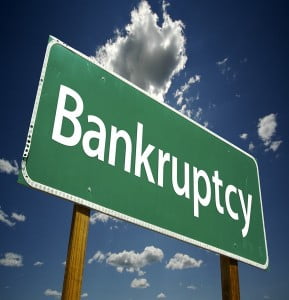Bouncing Back from Personal Bankruptcy
Once you have filed for personal bankruptcy, you may think your finances will be suddenly out of control. Sure, it’s nice to have a clean financial slate, especially after battling with a mountain of debt for so long but now that you have a personal bankruptcy on your credit score, you may think that there’s no way you’ll see another offer of credit from a lender again. In fact, you believe that for the next ten years, you won’t have a single say in your credit score…
Or will you?
Personal bankruptcy is easier to bounce back from than you may think. In fact, many former bankrupt individuals have repaired their credit score and quickly built up a nest egg, resulting in wonderful financial stability that just can’t be bought.
So if you are ready to learn how to bounce back from personal bankruptcy faster, here’s what you need to know:
Choose the Right Card Holder
The first thing you should do is to get a secured credit card from a reputable lender. These types of cards require deposits to use, which determines the card’s ultimate limit. You can only spend as much as you put down, which means that you’ll never run the risk of skyrocketing your card balance.
When choosing the right secured credit card holder, be sure to pick a lender that reports your faithful repayments to the major credit bureaus. One additional bonus: if you can find a lender that doesn’t report the card as secured, sign up with them as quickly as possible. These types of secured card lenders will skyrocket your credit rating in the blink of an eye.
Order Your Credit Reports
Another move that will save your credit rating is to immediately order copies of your credit report from all three agencies. Go over your previous debts with a fine tooth comb to ensure that they all were reported as discharged from your bankruptcy. If they were not, write a letter to the credit reporting agency and request that the debt be included in your personal bankruptcy. A debt that’s misreported can end up artificially dragging down your credit rating for several years, even with great financial behavior.
The bottom line is this: when it comes to bouncing back from personal bankruptcy, you’ll want to ensure that your financial tools and resources are working for you, not against you.
